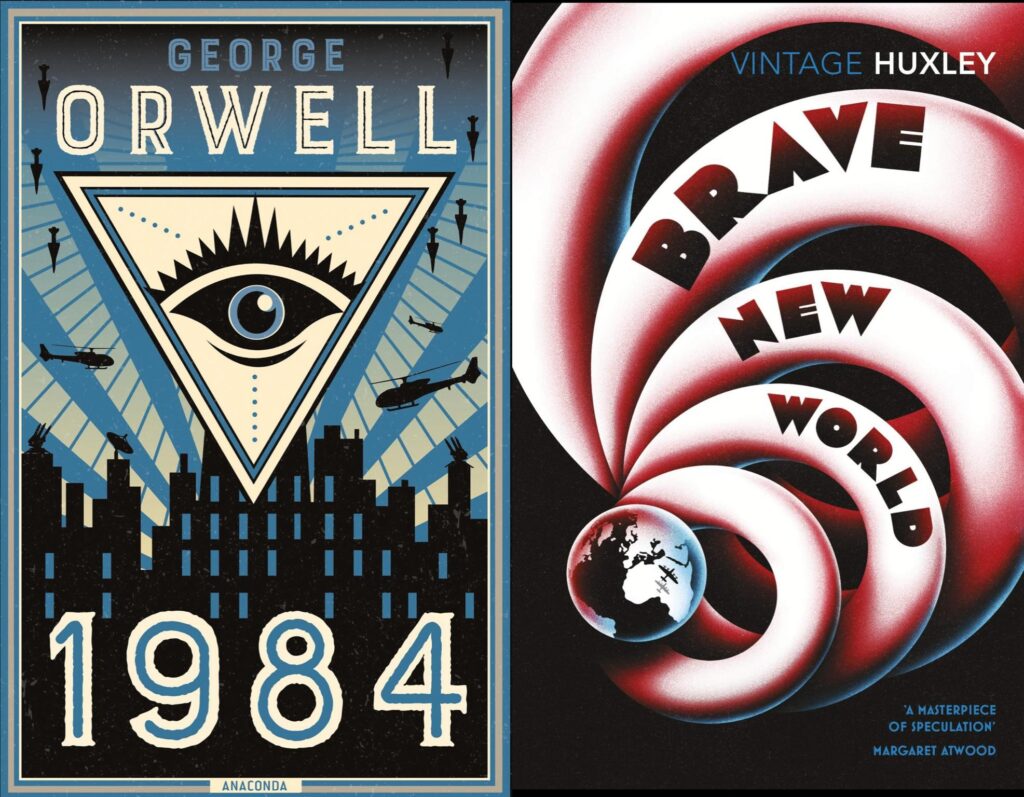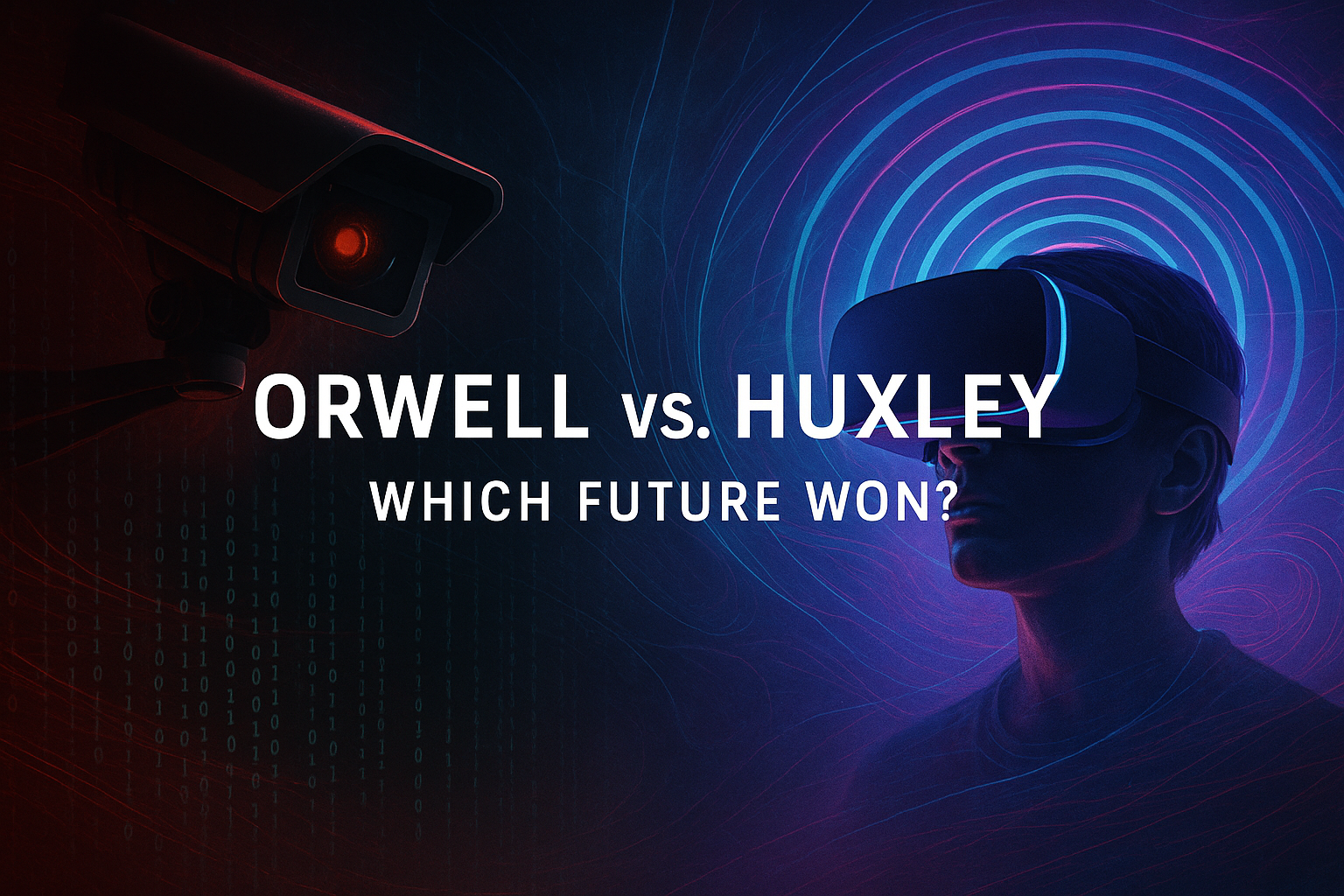
When George Orwell wrote 1984, he imagined a future strangled by fear, where every whisper was watched, every thought policed, and every truth rewritten. Aldous Huxley, on the other hand, looked at us and laughed. In Brave New World, he said: You won’t need to chain people up. Just drown them in pleasure, distraction, and endless consumption, and they’ll hand over their freedom willingly.
So, who nailed it? Honestly, both—but in different layers of the world we’re living in right now.
Orwell’s Shadow: The Fear Machine
“If you want a picture of the future, imagine a boot stamping on a human face—forever.”
— Nineteen Eighty‑Four, Part 3, Ch. 3
The Orwellian part of our reality is subtle, almost invisible unless you squint at it:
Surveillance cameras and AI tracking us like Big Brother’s eye. Social media algorithms rewriting what’s “true,” shifting narratives in real time. Governments and corporations pulling the strings by controlling not just information but how we talk about it.
Orwell’s warning wasn’t just about totalitarian regimes—it was about how language and truth can be weaponized. And we’ve seen that happen in headlines, tweets, and “official stories” on loop.
Huxley’s Glow: The Distraction Engine
“The civil libertarians and rationalists… failed to take into account man’s almost infinite appetite for distractions.”
— Brave New World Revisited (1958), “The Arts of Selling”
But here’s where Huxley looks almost prophetic. We’re not dragged into submission anymore—we scroll our way there:
Social feeds keep us endlessly entertained and endlessly angry (a perfect loop). Comfort culture—on-demand everything—makes questioning anything feel like too much effort. We’re hooked on dopamine hits from likes, notifications, and binge-worthy streaming marathons.
While Orwell feared a boot on our neck, Huxley saw the soft power of endless soma: the intoxicating mix of tech, consumerism, and distraction.
The Hybrid Dystopia
Here’s the kicker—we didn’t get just one of these futures. We got both, woven together like some darkly clever algorithm. The world we live in uses Huxley’s distractions (endless streaming, dopamine loops) to keep us too busy to notice Orwell’s control systems (surveillance, data mining, narrative control). It’s a double bind: we choose the candy-colored screen, but the screen is watching back.
Which author was most correct? Maybe the better question is: How do we keep our minds awake when the future they warned us about is already here?

Leave a Reply